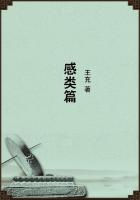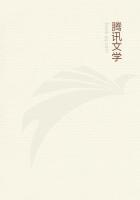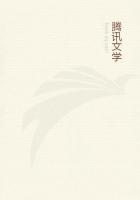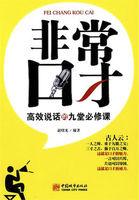Thanks to the courtesies extended me, I had been able to observe the principal battles, and study many of the minor details of a war between two of the greatest military nations of the world, and to examine critically the methods followed abroad for subsisting, equipping, and manoeuvring vast bodies of men during a stupendous, campaign. Of course I found a great deal to interest and instruct me, yet nowadays war is pretty much the same everywhere, and this one offered no marked exception to my previous experiences. The methods pursued on the march were the same as we would employ, with one most important exception. Owing to the density of population throughout France it was always practicable for the Germans to quarter their troops in villages, requiring the inhabitants to subsist both officers and men. Hence there was no necessity for camp and garrison equipage, nor enormous provision trains, and the armies were unencumbered by these impedimenta, indispensable when operating in a poor and sparsely settled country. As I have said before, the only trains were those for ammunition, pontoon-boats, and the field telegraph, and all these were managed by special corps. If transportation was needed for other purposes, it was obtained by requisition from the invaded country, just as food and forage were secured. Great celerity of combination was therefore possible, the columns moving in compact order, and as all the roads were broad and macadamized, there was little or nothing to delay or obstruct the march of the Germans, except when their enemy offered resistance, but even this was generally slight and not very frequent, for the French were discouraged by disaster from the very outset of the campaign The earlier advantages gained bythe Germans may be ascribed to the strikingly prompt mobilization of their armies, one of the most noticeable features of their perfect military system, devised by almost autocratic power; their later successes were greatly aided by the blunders of the French, whose stupendous errors materially shortened the war, though even if prolonged it could, in my opinion, have had ultimately no other termination.
As I have previously stated, the first of these blunders was the acceptance of battle by MacMahon at Worth; the second in attaching too much importance to the fortified position of Metz, resulting in three battles Colombey, Mars-la-Tour, and Gravelotte--all of which were lost; and the third, the absurd movement of MacMahon along the Belgian frontier to relieve Metz, the responsibility for which, I am glad to say, does not belong to him.
With the hemming in of Bazaine at Metz and the capture of MacMahon's army at Sedan the crisis of the war was passed, and the Germans practically the victors. The taking of Paris was but a sentiment--the money levy could have been made and the Rhine provinces held without molesting that city, and only the political influences consequent upon the changes in the French Government caused peace to be deferred.
I did not have much opportunity to observe the German cavalry, either on the march or in battle. The only time I saw any of it engaged was in the unfortunate charge at Gravelotte. That proved its mettle good and discipline fair, but answered no other purpose. Such of it as was not attached to the infantry was organized in divisions, and operated in accordance with the old idea of covering the front and flanks of the army, a duty which it thoroughly performed. But thus directed it was in no sense an independent corps, and hence cannot be, said to have accomplished anything in the campaign, or have had a weight or influence at all proportionate to its strength. The method of its employment seemed to me a mistake, for, being numerically superior to the French cavalry, had it been massed and manoeuvred independently of the infantry, it could easily have broken up the French communications, and done much other work of weighty influence in the prosecution of the war.
The infantry was as fine as I ever saw, the men young and hardy in appearance, and marching always with an elastic stride. The infantry regiment, however, I thought too large--too many men for a colonel to command unless he has the staff of a general--but this objection may be counterbalanced by the advantages resulting from associating together thus intimately the men from the same district, or county as we would call it; the celerity of mobilization, and, in truth, the very foundation of the German system, being based on this local or territorial scheme of recruiting.
There was no delay when the call sounded for the march; all turned out promptly, and while on the road there was very little straggling, only the sick falling out. But on such fine, smooth roads, and with success animating the men from the day they struck the first blow, it could hardly be expected that the columns would not keep well closed up. Then, too, it must be borne in mind that, as already stated, 'campaigning' in France--that is, the marching, camping, and subsisting of an army--is an easy matter, very unlike anything we, had during the war of the rebellion. To repeat: the country is rich, beautiful, and densely populated, subsistence abundant, and the roads--all macadamized highways; thus the conditions; are altogether different from those existing with us. I think that under the same circumstances our troops would have done as well as the Germans, marched as admirably, made combinations as quickly and accurately,, and fought with as much success. I can but leave to conjecture how. the Germans would have got along on bottomless roads--often none at all--through the swamps and quicksands of northern Virginia, from, the Wilderness to Petersburg, and from Chattanooga to Atlanta and the sea.
Following the operations of the German armies from the battle of Gravelotte to the siege of Paris, I may, in conclusion, say that I saw no new military principles developed, whether of strategy or grand tactics, the movements of the different armies and corps being dictated and governed by the same general laws that have so long obtained, simplicity of combination and manoeuvre, and the concentration of a numerically superior force at the vital point.
After my brief trip to Versailles, I remained in Paris till the latter part of March. In company with Mr. Washburn, I visited the fortifications for the defense of the city, and found them to be exceptionally heavy; so strong, indeed, that it would have been very hard to carry the place by a general assault. The Germans, knowing the character of the works, had refrained from the sacrifice of life that such an attempt must entail, though they well knew that many of the forts were manned by unseasoned soldiers. With only a combat here and there, to tighten their lines or repulse a sortie, they wisely preferred to wait till starvation should do the work with little loss and absolute certainty.
The Germans were withdrawn from Paris on the 3d of March, and no sooner were they gone than factional quarrels, which had been going on at intervals ever since the flight of the Empress and the fall of her regency on the 4th of September, were renewed with revolutionary methods that eventually brought about the Commune. Having witnessed one or two of these outbreaks, and concluding that while such turbulence reigned in the city it would be of little profit for me to tarry there, I decided to devote the rest of the time I could be away from home to travel in England, Ireland, and Scotland. My journeys through those countries were full of pleasure and instruction, but as nothing I saw or did was markedly different from what has been so often described by others, I will save the reader this part of my experience. I returned to America in the fall, having been absent a little more than a year, and although I saw much abroad of absorbing interest, both professional and general, yet I came back to my native land with even a greater love for her, and with increased admiration for her institutions.

